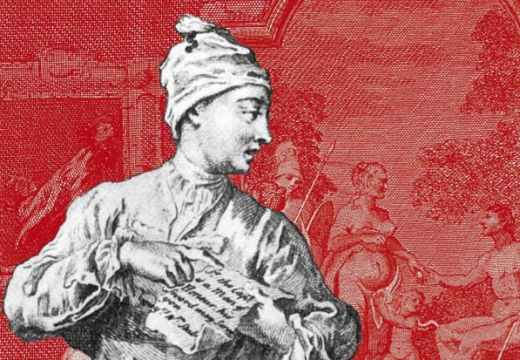Introducing Rakewell, Apollo’s wandering eye on the art world. Look out for regular posts taking a rakish perspective on art and museum stories
Rakewell’s weekly outing took him to Parliament Square, where the great and the good – at least that was the idea – stand memorialised in bronze around the grassy patch before the Palace of Westminster. Imagine your correspondent’s surprise to find not Winston Churchill scowling in the direction of Big Ben, but a big grey box – looking for all the world like an industrial chimney that has sprouted up in SW1, or perhaps some ersatz and not particularly successful tribute to Christo.
Ivor Roberts-Jones’s statue of Churchill has been crated up to prevent further applications of graffiti or other ad hoc alterations to it during Black Lives Matter protests that are planned in central London this weekend, and no doubt to avoid stand-offs or worse between protestors and the members of far-right groups who have pledged to ‘defend’ this and other statues.
The statue was created posthumously, with the Welsh painter Kyffin Williams apparently standing in for Churchill as Roberts-Jones modelled it. But as the Telegraph reported in 2004, the Churchill Statue Committee was none too happy with the plaster model of Churchill’s head with which it was initially presented: Churchill’s forehead and bald pate bore too close a resemblance to those of Benito Mussolini. ‘At the moment the head is undoubtedly like Churchill,’ the appeal organiser wrote in a report, ‘but perhaps not quite right of him at the pinnacle of his career. The cheeks, the eyes, the forehead and the top of the head require improvement. I told Mr Roberts-Jones that above the eyes I thought I was looking at Mussolini.’
Perhaps it’s lucky that Churchill himself didn’t see it, then. When Graham Sutherland was commissioned to depict the former prime minister in his usual parliamentary dress in the 1950s, Churchill was so miffed by the resulting portrait that he stowed it away at his home and Chartwell, where it was later burned on the orders of his wife, Lady Spencer-Churchill. But as the writer Tom Overton has pointed out on Twitter, perhaps an image of the portrait will suffice to help us all imagine Churchill ensconced in his big grey box in Parliament Square:
Graham Sutherland’s destroyed portrait of Churchill now looks like it was painted from within the box pic.twitter.com/q9rMjpe9X7
— Tom Overton (@tw_overton) June 12, 2020
Got a story for Rakewell? Get in touch at rakewell@apollomag.com or via @Rakewelltweets.














![Masterpiece [Re]discovery 2022. Photo: Ben Fisher Photography, courtesy of Masterpiece London](http://zephr.apollo-magazine.com/wp-content/uploads/2022/07/MPL2022_4263.jpg)
‘Like landscape, his objects seem to breathe’: Gordon Baldwin (1932–2025)